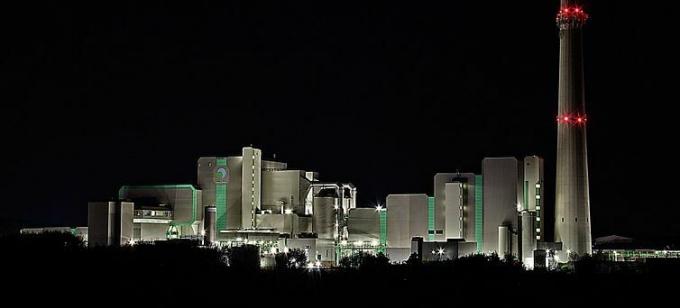One of the most important non-renewable resources is PetroleumThe countries with large deposits of this material became economic powers thanks to this. During the first decades of the 20th century, this fuel started the engine of industries and factories, It even fueled the war machine during the two most significant armed conflicts in the history of the humanity.
The conflicts to control this important resource are part of its history and follow us until Today, however, one of the crises derived from these most important conflicts occurred in the year 1973, when countries belonging to the Persian Gulf made the decision not to export more oil to Western countries.
Advertisements
In this article you will find:
Origin of the 1973 Oil crisis
Although the Second World War had ended, the years that followed were not necessarily times of peace, as armed conflicts escalated around the world, especially in the East.
During this period Israel fought the well-known Yom Kippur War, which was also known as the Ramadam War or the October War. Its trigger was the attack on Israeli positions in occupied territories, during an important Jewish day or holiday Yom Kippur.
Advertisements

Economic outlook during the 1973 oil crisis
Dependence on crude oil by countries like the United States and Japan had grown. On the other hand, the American economy faced great challenges, since the dollar had fallen as a result of the war with Vietnam and coupled with this the current president in North America Richard Nixon made the decision to delink the US dollar from gold, thus ending what had become known as the Bretton Accords. Woods.
Advertisements
To complete the perfect storm for the crisis, joins the embargo that the countries of the Arab bloc of OPEC decided to impose on those Western countries that supported Israel during the aforementioned Yom Kippur war, all this brought serious consequences and unleashed what was later known as the Oil crisis of 1973.
Economic impact of the embargo
The main consequence of this measure directly impacted the price of a barrel of oil, which rose to twelve dollars per barrel, basically this changed the flow of capital and the oil exporting countries began to accumulate wealth. A large part of these resources in the Middle East were used to buy weapons, which added tension to the already delicate situation they were going through at that time. moment and other resources were used to lift those economies of the countries that were left in the middle of the embargo in underdeveloped countries of that time. region.
Advertisements
The impact that all these measures had on the American way of life and on the American economy was really harsh. On the one hand, the gallon of gasoline went up to be worth 55 cents in a short period of time, to this it was joined by the fall of the New York stock market, which in 6 weeks lost 97,000 million Dollars.
The rise of Saudi Arabia
As we mentioned, many eastern countries took advantage of this moment in which they took control of their main resource to invest in the economy of their countries, such was the case of Saudi Arabia, which began a series of bold investments to achieve development, in this way it can be observed 2 sides of the consequences of the aforementioned embargo, unleashing crises in the West and opening opportunities in the Middle East for the economies of those countries. countries.
Advertisements
Consequences in the UK and Europe
England was also hit hard by this embargo, having to limit production and working hours due to fuel shortages, however, the shortages and other consequences of the embargo were not experienced in the same way throughout Europe.
One of the countries that had to deal with the consequences of the embargo was the Netherlands, however, after a statement made on 6 November of that year and taken as pro-Arab, it resulted in the lifting of the embargo for the Economic Community European.
Japan and the 1973 oil crisis
On the other hand, Japan dealt with the embargo in a very efficient way, with the development of much more efficient cars to save energy, which together With a highly developed transport system in the most densely populated areas, it was essential to overcome it in a better way than other countries developed.
Post-embargo consequences
Although the embargo only lasted 6 months, its consequences were felt for several more years, especially in countries like the United States, who know this time as a time of great economic recession, in which they had to ration gasoline, employ plans for cars with license plates ending in even numbers to fuel on days pairs.
Moreover, it was also the end of the boom times in France that became known as Trente Glorieuses, which had spanned 30 years, followed by long years of unemployment and a weak economy.
Oil crisis in Latin America
Many of the developing countries of Latin America had asked for a lot of money from international authorities to improve their respective economies, during the years 60 and 70, which resulted in a great lack of liquidity as a result of the recession in which developed countries entered as a result of the embargo 1973 oil tankerThis greatly affected the economies of countries such as Argentina, Brazil and Mexico, although these consequences were felt throughout the hemisphere.
This oil crisis is known as the first oil crisis which had great consequences that were felt for many years after the embargo was lifted. Conflicts over oil continue even today, so developed countries have sought alternative ways of fueling such as ethanol and solar energy to face an eventual crisis such as the one experienced in 1973.


